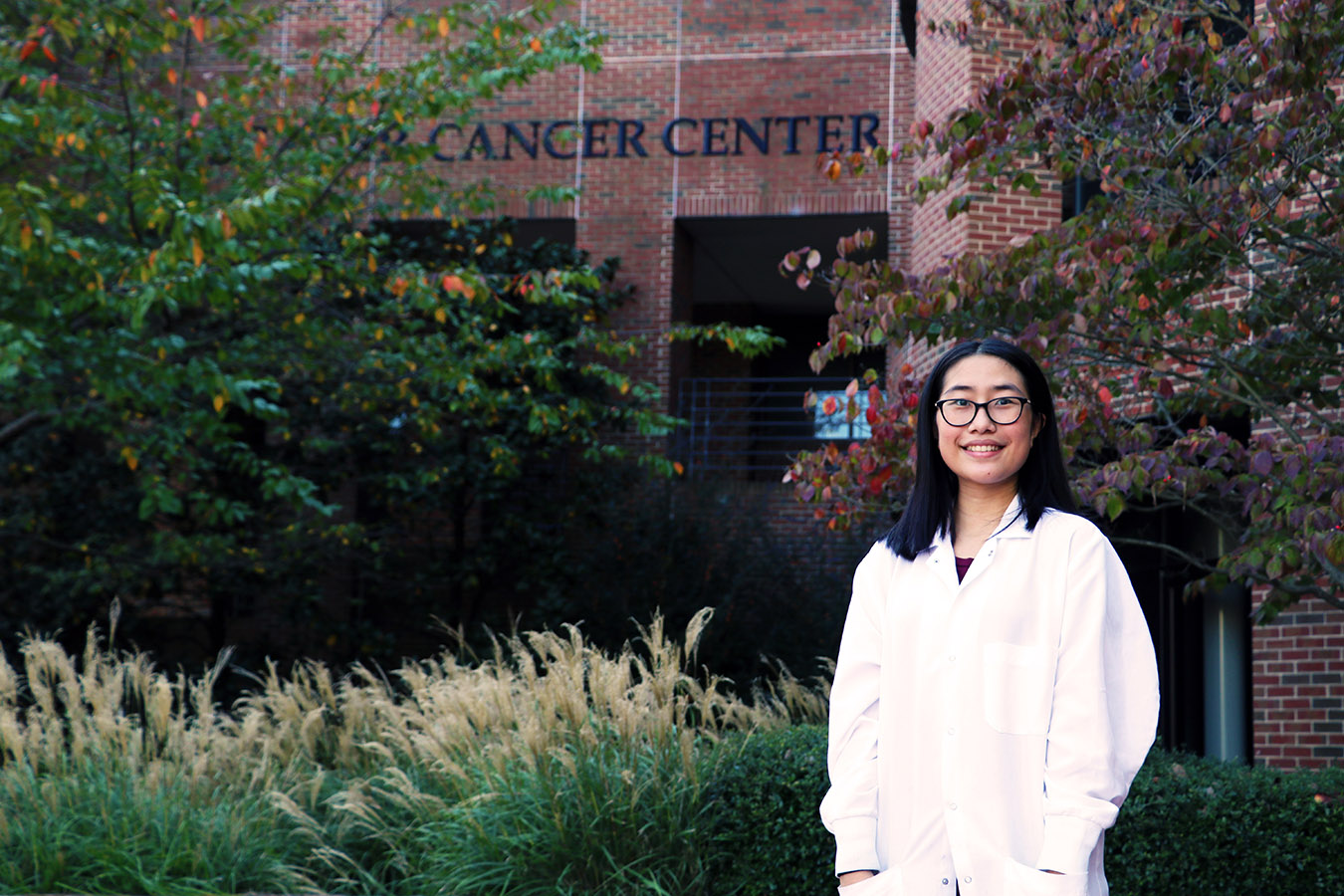
Research Spotlight: Improving Cancer Treatments
October 19, 2020
Q: Where do you conduct your research?
A: I have been working in the lab of Dr. Yue Xiong at the UNC Lineberger Comprehensive Cancer Center. He has recently retired from UNC but still functions as a scientific mentor for me; I am now under the guidance of Dr. Bill Marzluff specifically for BIOL 395H this semester and planned Senior Honors Thesis for next semester.
Q: What research questions is the Xiong Lab working to answer?
A: The Xiong Lab has two main areas of research. The first is Cullin RING E3 ligases (CRLs) and their role in cancer. Specifically, our lab works on identifying critical substrates of individual CRL involved in cancer and developing a novel CRL-based approach called proteolysis-targeting chimeras (PROTAC) for drug discovery. The second is epigenetic control of antitumor immunity. We examine the mechanisms regulating the TET family of DNA demethylases, the epigenetic control of tumor microenvironment, and the development of novel therapeutic strategies to enhance cancer immunotherapy.
Q: Can you tell us about your specific research project?
A: My primary project has been assessing the effectiveness of a novel therapeutic platform called proteolysis targeting chimaera (PROTAC), specifically its effect on mutant epidermal growth factor receptor (EGFR) in lung cancer cells. The aim of this project is to develop an alternative potential treatment to current small molecule inhibitors, as such inhibitors fail to effectively bind to non-enzyme proteins and lose efficacy over time through the evolution of resistance in cancer cells. Another project I am working on currently is for BIOL 395H and BIOL 692, where I am exploring the connection between epigenetics and antitumor immunity by determining the role of TET2 DNA demethylase in regulation of PD-1 expression in macrophages.
Q: How has this research experience shaped your future goals?
A: My experience in undergraduate research with the Xiong lab has been riddled with both successes and failures, high points and low points; however, through it all, I have become increasingly determined to pursue research with my future career in academia. There is something truly wonderful about designing and carrying out your own experiments to contribute to the larger bank of scientific knowledge. Furthermore, all the projects that I have been a part of over the years have strengthened my passion to discover novel targets for cancer therapy in graduate school and beyond.
